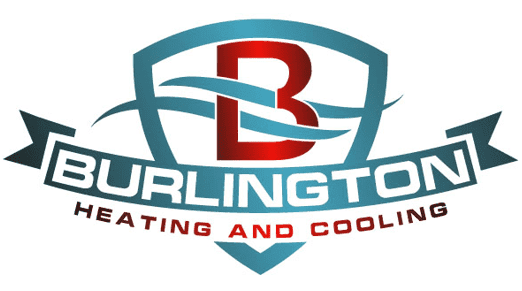
How Can I maintain my own AC ?
The Homeowner’s Guide to Air Conditioner Care
How Can I maintain my own AC ?
Air conditioning systems are essential for maintaining comfort in our homes, especially during the sweltering summer months. However, many homeowners overlook the importance of regular upkeep, which can lead to inefficiencies, costly repairs, and even premature system failure.
In this comprehensive guide, we will explore practical tips and best practices for taking care of your air conditioner (AC), ensuring that it operates at peak performance. Some of the tips outlined below may say your thousands of dollars. If you’re not looking for a DIY option, then feel free to give us a call. We have veteran technicians available to serve you https://burlingtonheatingandcooling.ca/burlington-ac-inspection/. Now let’s take a look at the DIY information below.
Understanding Your Air Conditioner
Before diving into maintenance tips, it’s crucial to understand how your air conditioning system works. Most residential units are either central air systems or ductless mini-split systems. Both types primarily rely on refrigerants to absorb and dissipate heat, moving it outside your home to keep your indoor environment cool. Key components include:
Compressor: Pumps refrigerant through the system.
Condenser Coils: Release heat absorbed from inside the home to the outside air.
Evaporator Coils: Absorb heat from indoor air.
Expansion Valve: Regulates refrigerant flow.
Air Handler: Circulates cooled air throughout your home.
A basic understanding of these components will help you recognize when something may be off and why regular maintenance is essential.
Why Regular Maintenance Is Important
Regular maintenance of your air conditioner offers a multitude of benefits, including:
Increased Efficiency: A well-maintained AC unit runs more efficiently, leading to lower energy bills.
Extended Lifespan: Routine care can lengthen the life of your air conditioning system, saving you money on costly replacements.
Improved Air Quality: Regular filter changes and cleaning help maintain good indoor air quality by reducing allergens, dust, and pollutants.
Fewer Repairs: Proactive maintenance can catch small issues before they develop into costly repairs.
Comfort: A properly functioning air conditioner keeps your home comfortable regardless of outside temperatures.
Essential Air Conditioner Maintenance Tips
- Change or Clean the Filters
The air filter is a critical component in your air conditioning system, as it traps dust, dirt, and other particles to ensure clean air circulates throughout your home. Clogged filters can restrict airflow and reduce efficiency.
Frequency: Check your filters monthly, especially during peak usage months. Replace disposable filters every 1-3 months, while reusable filters should be cleaned every month.
How to Change: To change the filter, turn off the AC, locate the air filter compartment, remove the old filter, and install the new one, ensuring it’s facing the correct direction.
- Keep the Outdoor Unit Clean and Clear
Your air conditioner’s outdoor unit, often referred to as the condenser, needs space to operate effectively. Regular cleaning of this unit helps maintain efficiency.
Obstructions: Clear away any debris—such as leaves, dirt, and toys—that may accumulate around the condenser unit. A clearance of at least two feet on all sides is recommended.
Cleaning: Use a garden hose to gently wash the fins of the unit. Avoid using a power washer, as it can bend the fins and damage the unit. If there’s significant dirt buildup, consider hiring a professional.
- Schedule Professional Maintenance
While homeowners can do several maintenance tasks themselves, it’s crucial to schedule professional servicing at least once a year.
Spring Check-Up: Before the summer heat sets in, have a certified HVAC technician perform a thorough inspection. They will check for proper refrigerant levels, inspect electrical components, clean coils, and assess the overall system performance.
Furnace Maintenance: If you use a combined HVAC system, consider scheduling a check-up for your furnace in the fall to ensure your entire heating and cooling system are well-maintained.
- Inspect and Clean the Ductwork
Ductwork can accumulate dust, debris, and even mold over time, adversely affecting air quality and system efficiency.
Duct Cleaning: You may want to have your ducts cleaned by professionals every few years. This helps improve airflow and indoor air quality.
Check for Leaks: Inspect duct joints and seams for any cracks or leaks. Seal any gaps with duct tape or mastic sealant to prevent energy loss.
- Ensure Proper Thermostat Functionality
Your thermostat is the control center for your air conditioning system. A malfunctioning or outdated thermostat can lead to inefficient operation.
Upgrading: Consider upgrading to a smart thermostat. These devices offer energy-saving features and allow you to control your system remotely.
Calibration: Make sure the thermostat is level and positioned away from heat sources to provide accurate readings. If you notice irregularities in cooling, it may be time to have the thermostat calibrated or replaced.
- Monitor Refrigerant Levels
Refrigerant is vital for your air conditioning system’s cooling process. An incorrect refrigerant charge can affect efficiency and cause long-term damage.
Signs of Low Refrigerant: If your AC is blowing warm air or not cooling as effectively, it may be low on refrigerant. This can also be accompanied by ice forming on the evaporator coils.
Professional Check: Always have a professional check refrigerant levels, especially if you suspect a leak. Handling refrigerants requires specialized knowledge and equipment, making it essential to consult an HVAC technician.
- Inspect the Condensate Drain Line
Air conditioners generate moisture as they cool the air, which drains away through the condensate drain line. If this line becomes clogged, it can lead to water damage and increased humidity in your home.
Cleaning the Drain Line: Regularly inspect the drain line for clogs. You can try flushing it with vinegar to clear any buildup. Alternatively, a professional HVAC technician can clean out the line thoroughly.
- Optimize Your Home’s Insulation
Good insulation in your home can significantly affect your air conditioning’s efficiency. When your home is well-insulated, your cooling system doesn’t have to work as hard to maintain a comfortable temperature.
Check Insulation: Ensure insulation in your attic, walls, and floors is sufficient. In older homes, adding insulation can not only enhance comfort but also reduce energy bills.
Seal Gaps and Cracks: Look for gaps around windows, doors, and other openings. Seal these with weatherstripping or caulking to prevent cool air from escaping.
- Use Ceiling Fans Wisely
Ceiling fans can help circulate cool air effectively and make your space feel more comfortable, allowing you to set your thermostat a few degrees higher.
Fan Direction: During summer, ensure the fan blades spin counterclockwise to create a cooling breeze. In winter, switch the direction to clockwise to circulate warm air.
Energy Efficiency: Using ceiling fans in conjunction with your air conditioner can improve comfort while allowing you to save on cooling costs.
- Keep an Eye on Energy Bills
Monitoring your energy bills is crucial for spot-checking your AC’s efficiency. A sudden spike in your electricity bill could be a red flag indicating that your air conditioning system is working harder than it should.
Annual Comparison: Compare energy bills year over year during the same months. If you notice a substantial difference without an increase in usage, it might be time for a professional assessment.
Additional Tips for Long-Term Care
- Consider a Maintenance Plan
Many HVAC companies, like Burlington Heating and Air Conditioning, offer maintenance plans encompassing regular check-ups, priority service, and discounts on repairs. This can help ensure your air conditioner receives the attention it needs without you having to remember to schedule appointments.
- Invest in Quality Equipment
If you need to replace your air conditioning system, consider investing in high-efficiency units. Look for ENERGY STAR® certified products that not only provide better cooling performance but also reduce your environmental footprint and save you money over time.
- Smart Usage of Your AC
When it comes to using your air conditioner, a few smart strategies can enhance comfort while keeping energy usage down:
Set a Reasonable Thermostat Temperature: Aim for a temperature of around 75°F (24°C) when you’re at home and awake and approximately 80°F (27°C) when you’re away.
Avoid Heat Sources: Minimize heat generation by using appliances like ovens and dryers in the evenings when temperatures are cooler.
Utilize Window Treatments: Keep blinds and curtains drawn during peak sunlight hours to reduce heat gain and lessen the workload on your AC.
- Educate Your Family
Encourage all family members to understand the importance of air conditioner care. Simple actions, such as turning off lights in rooms that aren’t in use or closing doors behind them, can go a long way in maintaining efficient cooling.
- Stay Informed
Take the time to educate yourself about your specific AC model and its maintenance requirements. Familiarize yourself with the user manual and know when to call in a professional for help.
Conclusion
As a homeowner, taking proactive steps in caring for your air conditioning system can have a tremendous impact on its efficiency, lifespan, and performance. Following these maintenance tips will not only help you enjoy a comfortable home year-round but also save you money on energy bills and expensive repairs down the road.
By prioritizing regular maintenance, monitoring your system, and staying informed about best practices, you can ensure your air conditioner cools effectively and efficiently. Remember, if you ever find yourself in doubt or face issues you cannot resolve, don’t hesitate to contact a professional HVAC technician. They can help resolve problems quickly and ensure that your air conditioning system remains a reliable source of comfort for you and your family.
Taking care of your air conditioner may seem daunting, but with these simple yet effective practices, you can keep your cool when it matters most!
